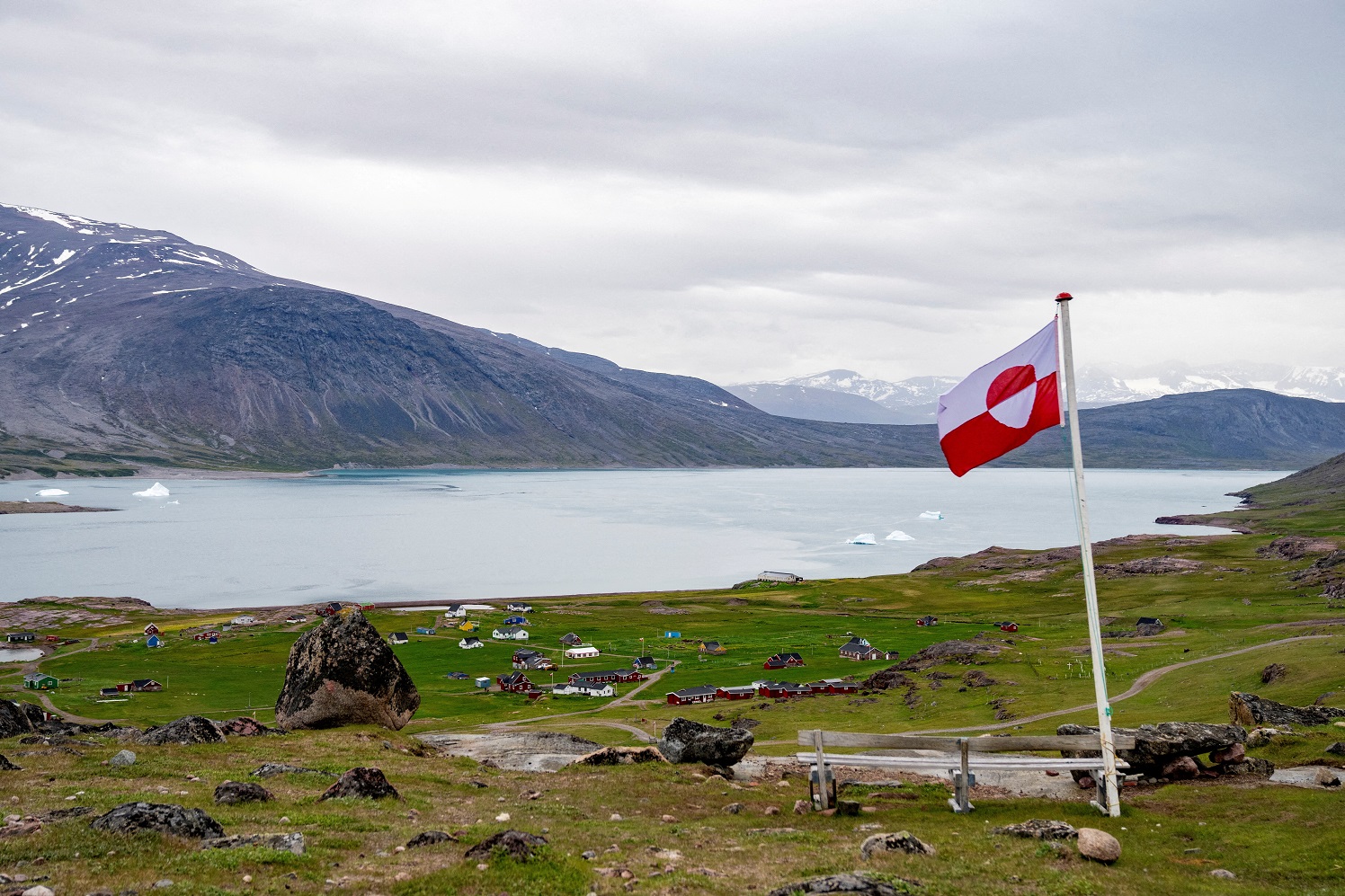

It is the shortest shipping route between the Far East and the Indian Ocean, the Middle East, Europe and Africa. It handles a quarter of all internationally traded goods, and if anybody tried to block it there would be a war.
The Fulda Gap used to be strategically important during the Cold War, because it was a flat lowland route from Soviet-occupied East Germany into the heart of West Germany. If the thousands of Russian tanks had ever rolled west, that’s where they would have had to break through.
Greenland is NOT strategically important. Not even a little bit. It is on the shortest route between Europe and North America, as you have doubtless heard, but this doesn’t make it important because that route is only used by airliners, and they are flying across Greenland at 35,000 feet.
No road goes across Greenland, the transatlantic flights don’t land there and no commercial vessels or warships sail past it (although a few tourist boats call in from time to time).
There is no military presence except a United States Space Force base in the far north of the island that operates a space tracking station and a large phased-array warning radar.
So why does Donald Trump want to take over Greenland? If the US wants scarce minerals from Greenland, the cheap way is just to pay for them, like it does with Chile or Canada.
There are no military threats to Greenland, and if there were they would be dealt with by Nato. (Denmark, which manages Greenland’s foreign affairs, is a Nato member.)
Yet Trump persists in his bizarre quest: "I do believe we’ll get Greenland because it really has to do with the freedom of the world. It has nothing to do with the United States, other than we’re the one that can provide the freedom. They can’t."
But this is an ignorant man speaking in hackneyed cliches. Why should we pay attention?
When Trump began rambling on about seizing Greenland on January 7, most non-Americans saw it as a typical Trump stratagem to unsettle potential adversaries.
He threatened to re-invade Panama and annex Canada at the same chaotic press conference, and the grown-ups elsewhere assumed that none of it needed to be taken seriously. A little while later he said he would use military force to take Greenland if necessary (but not Canada, which would only suffer economic pressure). Even then, most people treated it as a passing fantasy — until Trump had a 45-minute telephone conversation with Prime Minister Mette Frederiksen of Denmark on January 25.
She was shaken by his manner. One senior European official said the call had been "horrendous", and another said: "Before, it was hard to take seriously, but I do think it is serious and potentially very dangerous."
So there we are. There is a genuine possibility the US armed forces (assuming they obey a clearly illegal order) will invade and seize the territory of another Nato member on Trump’s command (unless his people can talk him out of it).
I still find this highly implausible, but the man keeps going on about it, so we should consider the likely consequences. If he is determined to invade, there are three possible outcomes.
One is that there is a palace coup in the White House which stops the invasion of Greenland — but possibly at the cost of an American civil war.
Another is that Nato, realising that its biggest member is a shameless aggressor, expels the United States and reconfigures itself as a defensive alliance that opposes both Russian and American aggression. Canada would remain in that new alliance if it dared, and Mexico would join if it were allowed. Slovakia and Hungary would probably be excluded.
The third and likeliest possibility is that all the other Nato countries privately deplore America’s actions but publicly pretend that it has all been an unfortunate misunderstanding. In that case, the alliance’s demise would be gradual, but still inevitable.
I will not consider a scenario in which Russia, the main beneficiary of Nato’s decline or demise, somehow had a hand in the proceedings.
I especially avoid any suggestion that Putin has (God forbid) some hold over Trump that compels his obedience. That sort of stuff is pure conspiracy theory.
Let us reject these grim scenarios. I prefer to believe that Trump is a 78-year-old man who has always used lies and empty threats to get his way and now shows some signs of cognitive decline, but who still retains a healthy sense of self-preservation that pulls him back from the brink of terminal folly. I hope.
• Gwynne Dyer is an independent London journalist.











